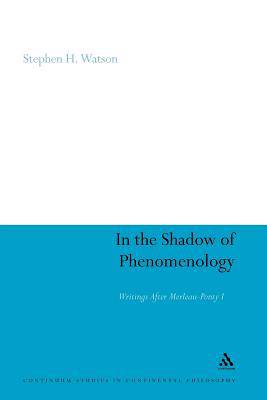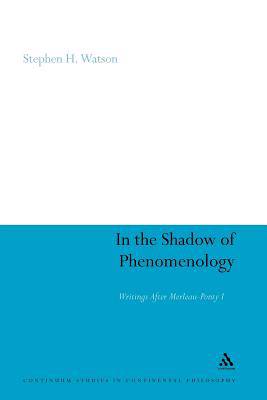
- Afhalen na 1 uur in een winkel met voorraad
- Gratis thuislevering in België vanaf € 30
- Ruim aanbod met 7 miljoen producten
- Afhalen na 1 uur in een winkel met voorraad
- Gratis thuislevering in België vanaf € 30
- Ruim aanbod met 7 miljoen producten
Zoeken
€ 88,45
+ 176 punten
Uitvoering
Omschrijving
Maurice Merleau-Ponty is widely known for his emphasis on embodied perceptual experience. This emphasis initially relied heavily on the positive results of Gestalt psychology in addressing issues in philosophical psychology and philosophy of mind from a phenomenological standpoint. Eventually he transformed this account in light of his investigations in linguistics, aesthetics, and the philosophy of history and institutions. Far less work has been done in addressing his evolving conception of philosophy and how this account influenced more general philosophical issues in epistemology, accounts of rationality, or its status as theoretical discourse. Merleau-Ponty's own contributions to these issues and, in particular, the theoretical status of the phenomenological account that resulted, have provoked varying responses. On the one hand, some commentators have understood his work to be a regional application of Husserl's foundational account of phenomenology. On the other hand, some commentators have questioned whether, in the final analysis, Merleau-Ponty was a phenomenologist at all. In In the Shadow of Phenomenology, Stephen H. Watson offers an in depth analysis of these responses and the complications and development of Merleau-Ponty's position.
Specificaties
Betrokkenen
- Auteur(s):
- Uitgeverij:
Inhoud
- Aantal bladzijden:
- 190
- Taal:
- Engels
- Reeks:
- Reeksnummer:
- nr. 77
Eigenschappen
- Productcode (EAN):
- 9781441118844
- Verschijningsdatum:
- 29/12/2011
- Uitvoering:
- Paperback
- Formaat:
- Trade paperback (VS)
- Afmetingen:
- 156 mm x 234 mm
- Gewicht:
- 272 g

Alleen bij Standaard Boekhandel
+ 176 punten op je klantenkaart van Standaard Boekhandel
Beoordelingen
We publiceren alleen reviews die voldoen aan de voorwaarden voor reviews. Bekijk onze voorwaarden voor reviews.








